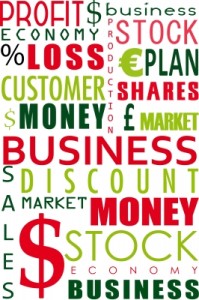 Steve Sipress
Head Rhino & Chief Strategist
Steve Sipress
Head Rhino & Chief Strategist
Roger Abramson: With Barriers To Entry So Low, What Stops People From Under-Cutting The Competition? (Part I)

Image courtesy of digitalart/FreeDigitalPhotos.net
If you’re asking the right kinds of questions, let me skip you five years ahead on your learning curve in the next five minutes.
Competitors are human. They want easy profits.
Because our animal instincts lead us to conserve energy, embracing difficulty and complexity is your number one business advantage, as you’ll soon see.
For example, business success Donald Trump is not necessarily an especially virtuous or talented human being. He’s simply willing to tackle harder problems than his competitors, leaving him in a category of one, because nobody will bother competing with him.
Anybody could compete with Trump, but it would be “too much work.”
Here’s an example of an unfairbreakthrough advantage:
The Gutenberg press was roughly a thousand times faster than copying by hand.
According to Francis Bacon and many others, the Gutenberg press changed the world, just as the mimeograph helped win two world wars.
If the movable-type printing press is a thousand times faster and cheaper, you’re not going to compete with it on price. But you know what?
Hundreds of years later, people still write by hand, and hire people who write by hand. Why?
Because you don’t need a thousand identical copies of everything. Sometimes, you just need one. And here’s where all your competition disappears:
Custom suits sell for a small fortune. Hair salons and plastic surgeons do custom work. Custom choppers. Limited-edition cars. Commodity pricing does not apply.
A modern example of the same kind of advantage:
Today’s growth hacking technology (which is harder and more expensive to test and implement) gives companies about a ten thousand fold advantage over their competitors.
Growth hacking has already profoundly changed the world, for example, leading to the social media-powered collapse of tyranny in the Arab Spring, the wide distribution of free email platforms like Hotmail, and the rapid rise of social media itself.
And yet people still hire high-tech and low-tech marketing consultants who know NOTHING about this technological growth advantage, paying them $10,000 – $50,000 for a day of business growth consulting. This proves:
You don’t need to be the best OR the cheapest to succeed.
The fastest-growing companies and the soon-to-be richest man in the world (Mark Zuckerberg, presently worth nearly $30 billion dollars) used what he calls “tools” (growth hacking) to grow to 1.3 billion Facebook users.
Reality doesn’t give a damn what you think it is. Quantum mechanics and relativity are fine examples of reality failing to conform to human intuition.
Why should business conform to our intuition? I don’t care how well-bred your family tree… Human intuition hasn’t had time to evolve or adapt to a radically different, high-tech business environment.
Want to go jogging or throw a stick? Go with your gut. As soon as it’s time to do anything as technologically advanced as lighting a fire without a match, your intuition instantly fails.
Click here for the second part of this four-part series.

Recent Comments